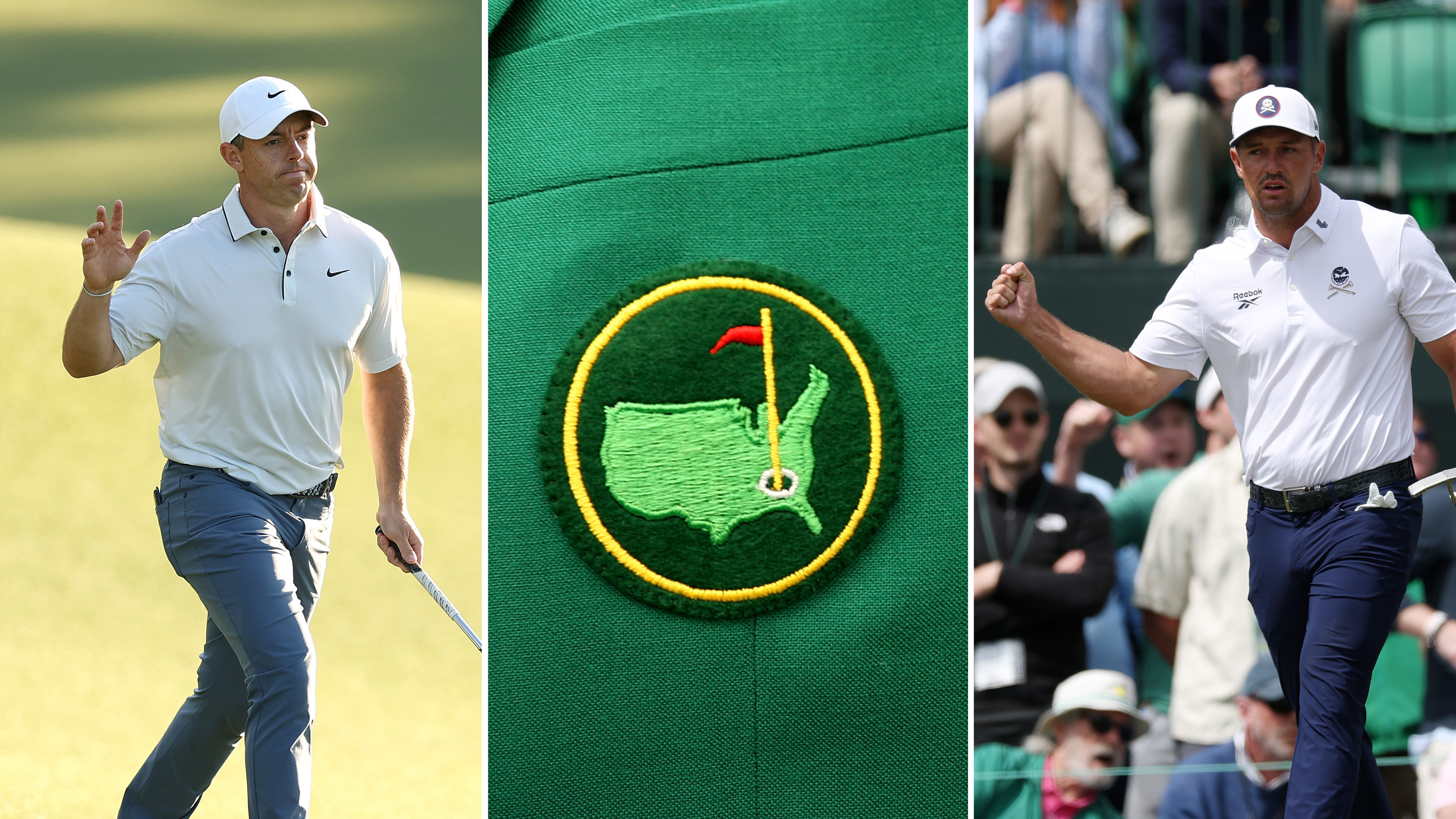Gimmes – Are They Good Or Bad For Golf?
Gimmes speed up play and can be a useful tool in matchplay but they can also encourage bad habits and a false sense of security in strokeplay.


From Jack Nicklaus’ famous “Concession” in the 1969 Ryder Cup right down to the Sunday fourball at your local club, the "gimme" is an integral part of golf. But are gimmes good or bad for the game? They can save friendships as well as break them, they might speed up play but they can paint a false golfing picture… Here we consider the good and bad sides of the gimme.
Good
It speeds up play, it keeps friendly games friendly and can be used as a strategic weapon in more competitive matches.
Pace of Play
Pace of play is a topic that’s constantly revisited in clubhouses across the country - “I grew a beard out there!” “I missed my kid’s birthday out there!” We’re always keen to consider methods for expediting the average round. Removing gimmes from the game would be a significant step in the wrong direction where speedy golf is concerned. If you take the average four ball match: On every green, you’ll see at least a couple of gimmes. That’s a considerable amount of time saved in marking, lining up and putting out. It could add up to tens of minutes over a round.
Keeping it friendly
Let’s face it – the average amateur struggles with the short putts. The nasty left to right two-footer is the thing of nightmares for many of us. When we’re out playing a fun game with our best golfing buddies, we don’t want to expose them to such tortures. Ok we might, but we’re smarter than that and will generally follow the principle of, “do unto others as you would have them do unto you.” A few considered gimmes will save friendships and prevent a silent, gravelly lunch in the clubhouse.
Shrewd tactics
In matches with a bit more needle – games you really want to win – the gimme can be a useful instrument of tactics and gamesmanship. Early doors, a few casual gimmes from the two to three-foot range can throw an opponent off guard. When you keep silent on one of similar length for a crucial half towards the death, they’ll be unprepared both mentally and physically, having not faced a short one to that point.
The gimme is good for golf when used correctly. It’s friendly and quick but can also be deadly when calculatingly deployed and held back.
Bad

The objective of golf is to shift a ball from a defined point to another distant, defined point and into a 4.25-inch-wide hole. If the ball doesn’t go into that hole, the objective of golf has not been completely fulfilled.
Get the Golf Monthly Newsletter
Subscribe to the Golf Monthly newsletter to stay up to date with all the latest tour news, equipment news, reviews, head-to-heads and buyer’s guides from our team of experienced experts.
Gimmes in golf lead to bad habits, a sense of false security and can cause friction between golfers.
Confusion and Frustration
Obviously in competition strokeplay events, the gimme is not allowed. But when playing a strokeplay format in friendly golf, the gimme could be used. In those “bounce” games, whether in a single group or part of a society outing, the gimme can cause confusion and frustration – who in the group agrees that putt is a gimme? Do all agree? Does one person want to give it but another feels it’s miss-able? It’s a gimme minefield.
Not In General Play
Under the World Handicap System, we can all submit General Play scores for handicap. Over an 18-hole round, 10 holes must be completed to The Rules of Golf for a score to be submitted. That means – No Gimmes! If a putt is given on a hole, then the player doing a General Play score would have to record a nett double bogey as they played it but did not complete it. The last thing we want are gimmes creeping into General Play golf and affecting people’s handicaps either positively or detrimentally, depending on their integrity!
False Sense of Security

How's Rory missed that one?
Gimme putts can lead to a false sense of security. If you never have to hole an 18-inch putt, how do you feel when you suddenly do have to in a competitive round or tense matchplay scenario? Being able to hole out well is an important part of golf and one that should be practised. Those who are rock-solid from short range should enjoy a golfing advantage over those who are not and the gimme detracts from this.
Gimme Friction
The gimme can also cause contention: “I didn’t give you that.” - Remember the 2015 Solheim Cup when Alison Lee picked her ball up only for Suzann Pettersen to say she hadn’t actually conceded it. It wasn’t a great situation. Or – “Why did you give that?” – The pleasant round turns into a stand-off when your playing partner objects to your generosity towards the opposition. We’ve all been in situations when a given putt has caused friction.
The gimme will though, and should, remain a feature of matchplay golf – it wouldn’t be the same without it. But when it comes to strokeplay, particularly with the introduction of the World Handicap System and General Play scores, perhaps it would be simpler, fairer, more accurate and better for our golf if we just always holed out.

Fergus is Golf Monthly's resident expert on the history of the game and has written extensively on that subject. He has also worked with Golf Monthly to produce a podcast series. Called 18 Majors: The Golf History Show it offers new and in-depth perspectives on some of the most important moments in golf's long history. You can find all the details about it here.
He is a golf obsessive and 1-handicapper. Growing up in the North East of Scotland, golf runs through his veins and his passion for the sport was bolstered during his time at St Andrews university studying history. He went on to earn a post graduate diploma from the London School of Journalism. Fergus has worked for Golf Monthly since 2004 and has written two books on the game; "Great Golf Debates" together with Jezz Ellwood of Golf Monthly and the history section of "The Ultimate Golf Book" together with Neil Tappin , also of Golf Monthly.
Fergus once shanked a ball from just over Granny Clark's Wynd on the 18th of the Old Course that struck the St Andrews Golf Club and rebounded into the Valley of Sin, from where he saved par. Who says there's no golfing god?
-
 Rory McIlroy vs Bryson DeChambeau: Who Are We Picking To Win The 2025 Masters?
Rory McIlroy vs Bryson DeChambeau: Who Are We Picking To Win The 2025 Masters?We're set up for a blockbuster final day at Augusta National where Rory McIlroy and Bryson DeChambeau play together in the final group
By Elliott Heath Published
-
 The Masters Crystal Rory McIlroy Has Already Won At Augusta National This Week
The Masters Crystal Rory McIlroy Has Already Won At Augusta National This WeekMcIlroy leads going in to the final round at Augusta National, with the four-time Major winner already bagging some silverware before he looks to claim the Green Jacket
By Matt Cradock Published